Your cat isn’t just “grumpy.” They might be hurting — and you’d never know.
Feline depression creeps in quietly. No dramatic sobbing, no diary entries — just a silent shift in your cat’s world that leaves them distant, disinterested, and lost in the shadows of themselves.
It’s not about being a bad pet parent. It’s about missing the signs no one talks about — the small changes that whisper instead of scream. Skipped meals. Less play. A purr that’s gone quiet.
This guide lays out 12 must-know truths about feline depression that many owners only discover too late. Don’t let that be you. Let’s pull back the curtain and help your cat find their way back to joy — one paw at a time.
Sudden Changes in Appetite

A sudden loss or increase in your cat’s appetite could be more than just a passing phase. Cats might stop eating due to stress, changes in their environment, or underlying health issues.
When a cat that once devoured its meals suddenly becomes disinterested, it may be signaling emotional or physical distress. A change in diet preference might also occur, indicating a need for a vet check-up.
Explore any recent changes at home or stressors that may be affecting your cat’s eating habits, as these could be linked to depression.
Increased Sleeping Patterns

A cat enjoying extra naps could be more than just indulging in beauty sleep. While cats are known for their love of snoozing, excessive sleep can be a sign of depression.
Pay attention if your feline is consistently sleeping more than usual or seems lethargic even when awake. A depressed cat often lacks the energy or motivation to engage in activities once loved.
Monitor changes in sleep patterns, as they may reveal underlying emotional distress needing attention.
Loss of Interest in Play
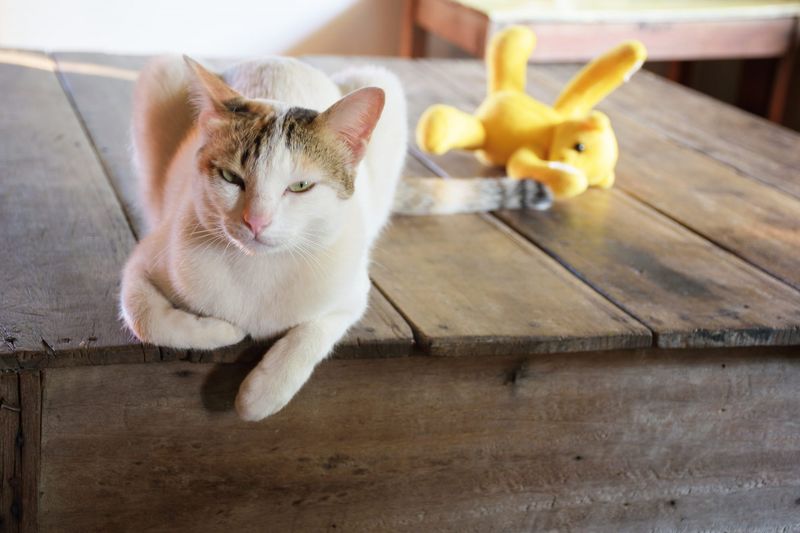
When toys gather dust and playtime no longer excites your feline friend, it might be time to investigate further. Cats express their joy and curiosity through play; losing interest might indicate depression.
A cat who once chased toys with vigor but now prefers solitude could be silently asking for help. This shift is a crucial behavioral cue that something might be wrong.
Re-engaging them with new activities or toys could reignite their playful spirit and help assess their emotional state.
Self-Isolation
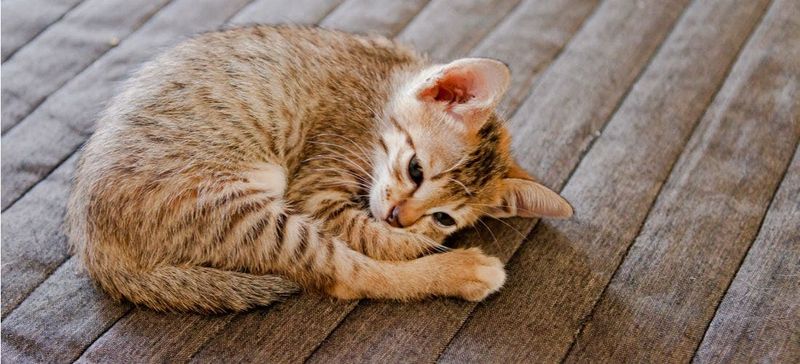
Has your usually social cat started retreating to secluded corners? Self-isolation is a common sign of feline depression. Cats might hide away due to fear, stress, or discomfort in their environment.
A previously affectionate cat that now avoids interaction may be expressing its emotional turmoil through isolation. Understanding this behavior can guide you in supporting your cat.
Encouraging gentle interaction and providing safe spaces can help them feel secure and foster a return to normalcy.
Grooming Changes
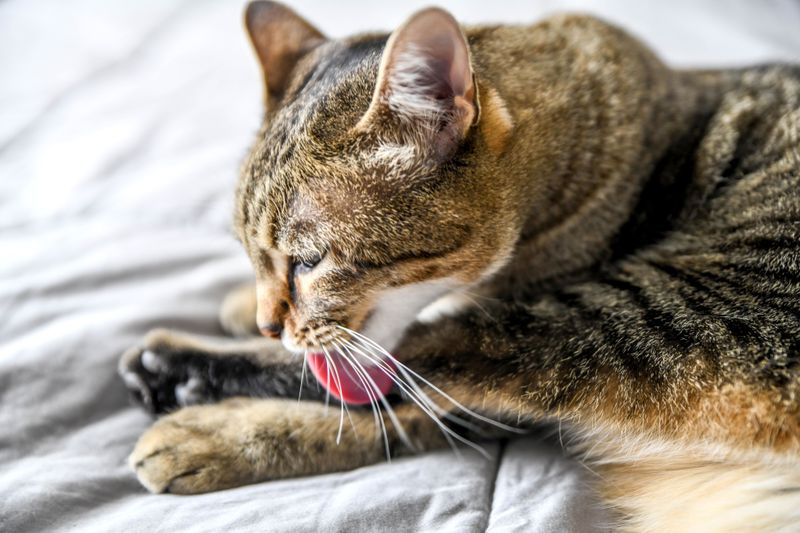
Cats take pride in their grooming rituals, often spending hours cleaning themselves. A noticeable decline in grooming habits can indicate depression.
When a cat’s once glossy coat becomes matted or dull, it may be too burdened by its emotional state to maintain self-care. Conversely, over-grooming can also be a sign of anxiety or stress.
Recognizing these changes allows you to address potential underlying issues and restore your cat’s well-being with proper care and attention.
Excessive Vocalization

If your cat’s meows have become more frequent or intense, it’s time to listen closely. Excessive vocalization can be an indication of underlying depression or anxiety.
Cats struggling with emotional distress might express it through increased vocal behaviors, seeking comfort or attention. This change can be particularly noticeable if your cat was once quiet.
Responding to these vocal cues with affection and attention can help alleviate their stress and build a stronger bond.
Aggression or Irritability

A normally gentle cat exhibiting sudden aggression or irritability may be battling inner turmoil. Depression can manifest as anger or unease, changing a cat’s demeanor.
This behavioral shift might include hissing, swatting, or biting when approached. Understanding these actions as cries for help is essential for addressing the root cause.
Providing a calm and stable environment may soothe your cat’s nerves and help them return to their tranquil selves.
Changes in Litter Box Habits
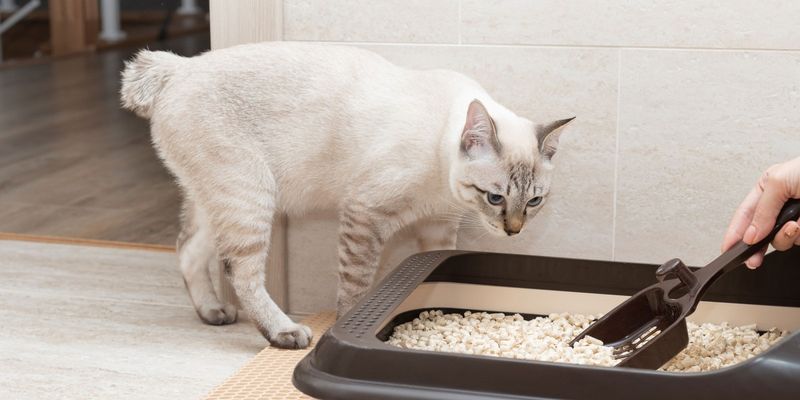
Cats are creatures of habit, especially when it comes to using the litter box. A sudden change in these habits, such as accidents or avoiding the box, might indicate depression.
Stress or discomfort can lead a cat to act out by altering its bathroom routines. Investigate any environmental changes or stressors that could contribute to this behavior shift.
Addressing these issues promptly can help restore your cat’s sense of security and proper litter box habits.
Pacing or Restlessness
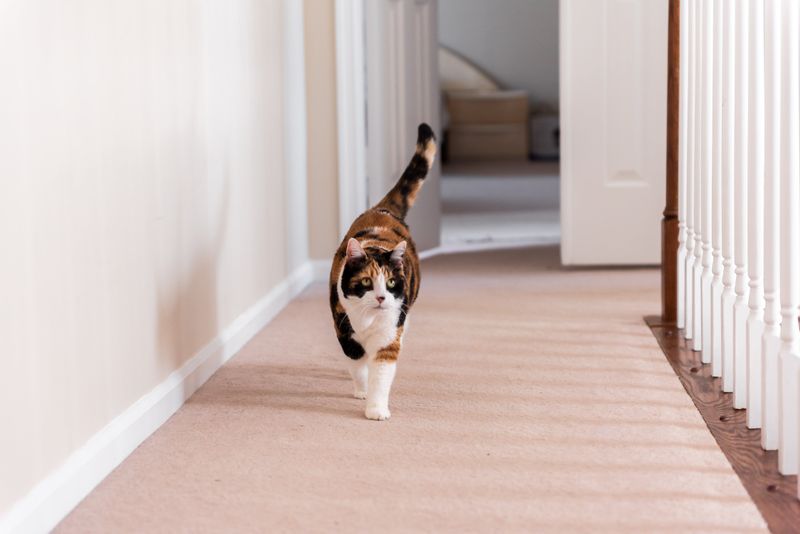
Restless pacing or frequent movement without purpose can signal underlying emotional distress in your cat. This behavior often indicates a lack of contentment or anxiety.
Observing your cat’s restless actions can provide clues to their mental state. Creating a calm environment and offering comforting routines may help ease their unease.
Recognizing these signs early allows for timely intervention and care, ensuring your cat feels safe and supported.
Avoidance of Eye Contact
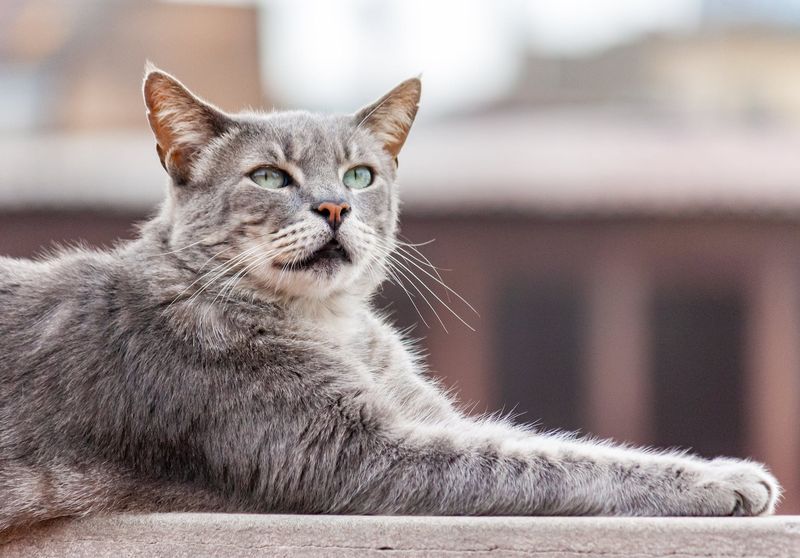
Cats communicate a lot through their eyes, and avoiding eye contact can be a subtle indication of depression. This behavior might suggest discomfort or a longing to withdraw.
A cat that once held your gaze but now turns away may be silently expressing its emotional struggles. Understanding this cue is crucial for addressing their needs.
Gentle encouragement and patience can help rebuild trust and connection with your feline companion.
Unexplained Weight Changes
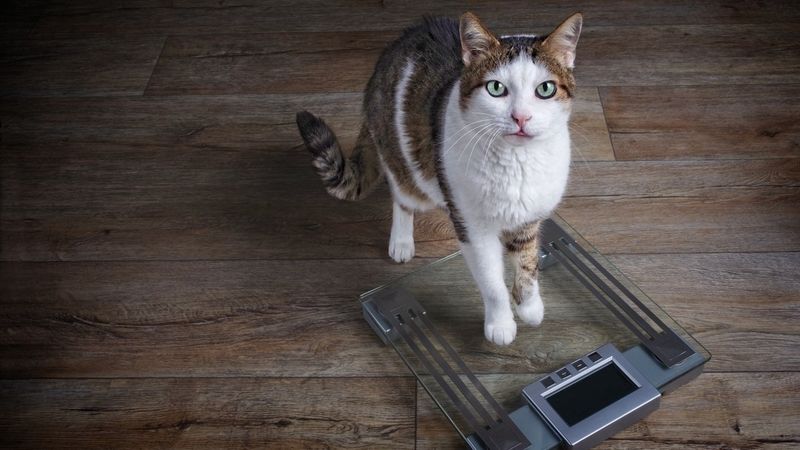
Noticing unexplained weight gain or loss in your cat can be a significant clue to their emotional health. Depression often affects appetite and metabolism.
A sudden weight change might result from stress-related eating habits or a lack of interest in food. Monitoring their weight and diet is vital for overall health.
Consulting a veterinarian can help identify any underlying health issues contributing to these changes, ensuring your cat receives the proper care.
Changes in Social Behavior

Cats are social creatures, and a shift in their interaction with others can be telling. A previously social cat that suddenly avoids other pets or people might be experiencing depression.
Understanding these changes requires observing your cat’s behavior closely. They may be seeking solitude to cope with their feelings.
Offering support and gently encouraging social interactions can help your cat regain confidence and reconnect with their environment.

